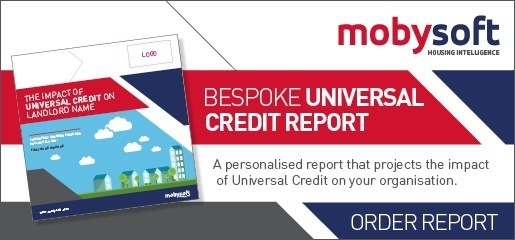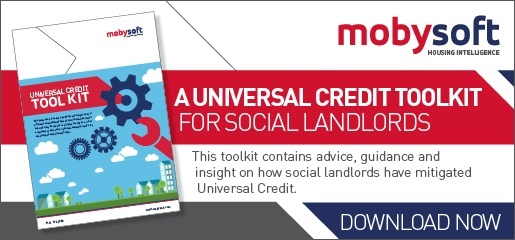The impact of Universal Credit has been felt by Scottish RSLs (Registered Social Landlords) and other institutions who have had first-hand experience of how it is having devastating consequences on many of its claimants.
It is because of evidential data around the impact of UC that the Scottish Government has used its devolved powers to intervene around this reform. Scottish claimants, from October 4th 2017, can choose for the benefit to be paid to them twice a month, rather than monthly, and their rent element of their UC to be paid direct to their landlord.
Following on from these interventions are central Government’s recent changes to the administration of Universal Credit, where the chancellor announced the abolition of the seven-day waiting period and enabling claimants to continue to receive Housing Benefit two weeks after making the initial claim.
So, what will these changes mean for Scottish RSLs? It is potentially easier to unpick the announcement by central Government about the administration changes to Universal Credit first. The chancellor’s declaration about the abolition of the seven-day wait to claim UC will have a positive impact specifically on those who were employed prior to going onto Universal Credit, according to the financial inclusion team at Thenue Housing.
“This group would have a seven-day waiting period before they could apply, they will now have the same total 5 week period as other UC applicants to wait for their first UC payment,” explains Brian Gannon, Head of Housing at Thenue.
“The two-week housing benefit claim will lessen the spike in arrears that landlords are experiencing,” believes Derek Steele, CEO of Mobysoft. “However, arrears will still increase, unless the government scraps the entire waiting period for the initial period.”
When discussing the changes implemented by Holyrood, landlords we spoke to were realistic about how this will work and the benefits it will derive. Dumfries and Galloway Housing Partnership (DGHP) explained how they currently have signed protocols with Council on information exchange and verification of documents and are part and parcel of their Housing Benefit process, which works well, but these don’t exist for Universal Credit.
Iain Thomson, Income Manager at DGHP commented:
“We have good relations with DWP but we are concerned that when its full service information will be hard to gather and share. For example, we are told that the claimant must give permission to DWP every time DGHP want to check details with DWP. Tenants in Scotland will also be given the choice as to who receives the HCE so this could place extra pressures on our income collection. We will have to remain vigilant and submit requests for managed payments when there are two months arears or a known vulnerability.”
“Hopefully most of our tenants would opt to have the HCE paid direct, guaranteeing income similar to HB, which means not having to chase payments, less workload, less court actions, fewer evictions and lower transaction costs. And, also if the tenant opts to be paid twice monthly this will be similar to previous payment cycles therefore easier for them to manage their money,” explains Brian Gannon.
However, there was concern about the DWP’s ability to manage these direct payments.
“DWP’s not great at managing payments and we don’t have a working relationship with them yet, like we do with Housing Benefit with councils. Suggestions from other RSLs in full service areas is that it is currently easier to manage an arrangement to pay with the tenant than deal with DWP and their payment systems for landlords,” comments Gannon.
This view was echoed by DGHP, as Iain Thomson explains:
“We quite often experience problems with the admin flow with the DWP. Forms going missing or having to repeat direct claim applications, etc. Also when enquiring it can be time consuming to get the right information and sometimes calls can last for a long time.”
At present DGHP have around 200 claims, which is manageable, but when Dumfries and Galloway goes full-service Thomson believes “it will be much more challenging.”
Fiscally Challenged?
All these measures come when Scottish RSLs are facing financial pressures, this is especially true for Scottish Local Authorities. A recent article in the Daily Record highlighted how nine Scottish councils had between them set aside over £8m to mitigate the effects of Universal Credit.
This, at a time, when Scottish Councils’ debt rose by more than £800m in 2016/17, according to Scotland’s local government spending watchdog. And with their funding being squeezed, as the Scottish Government’s provision fell by 5.2% in 2016/17 to £9.7bn, moreover Holyrood provides councils with around two-thirds of their budgets.
“At present it’s too early to say what the effects of the changes to Universal Credit will be, however there is still concern that tenants will still be driven into debt by having to wait coupled with the perceived inefficiencies of working with DWP rather than a landlord’s relevant local authority,” concluded Derek Steele.
For those landlords concerned about measuring the impact of Universal Credit you can order your own bespoke UC report by following this link that forecasts what the effects will have on revenues and housing officers.
Also, you can download a free UC toolkit that contains advice, guidance and insight on how different social landlords have dealt with Universal Credit and what they have done to mitigate the effects on their organisation.


